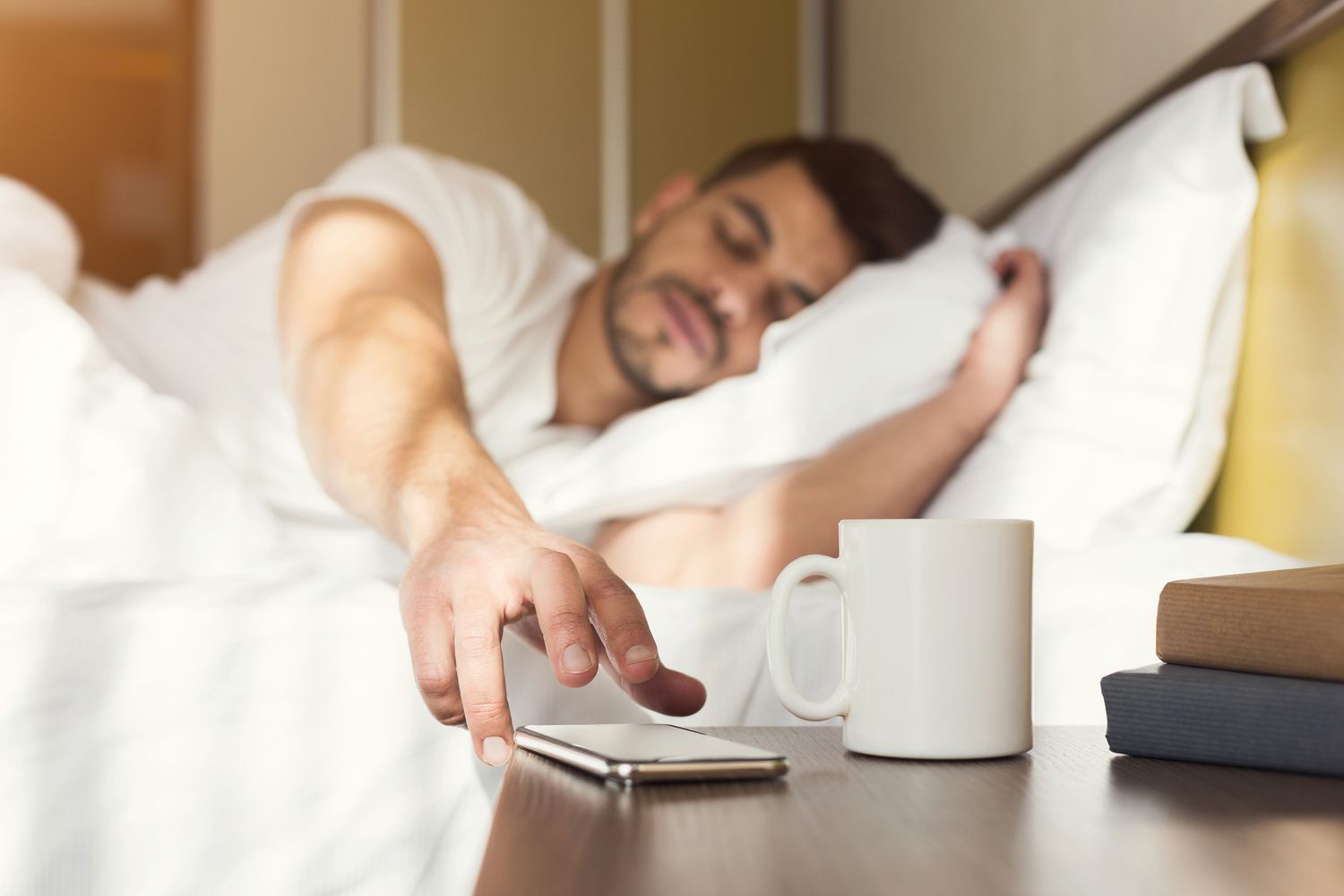Study Suggests Hitting the Snooze Button in the Morning May Actually Have Benefits

New research indicates that hitting the snooze button on your morning alarm may not be as detrimental to your health as previously believed.
Two fresh studies featured in the Journal of Sleep Research suggest that snoozing may not be as harmful as experts initially theorized.
"The notion that snoozing was harmful kept being reinforced, but upon conducting our research, we discovered there was a dearth of data to support it," Tina Sundelin, a sleep loss researcher at Stockholm University and the lead author of the report, said.
The recently conducted research supports the idea that sleep routines should be tailored to the individual and the habits that work for some people may not necessarily benefit everyone, according to sleep disorders specialist Michelle Drerup at the Cleveland Clinic Sleep Disorders Center.
"There is no universal approach to using the snooze button," she clarifies.
The following is for those who might gain from using the snooze button, and when such habits may suggest a more serious problem requiring attention.
In the first study, Sundelin's team analyzed data from 1,732 adults to understand which people are more inclined to hit the snooze button and for how long. Almost 69% of the group sometimes use the snooze function or depend on several alarms.
The team discovered that younger and nocturnal individuals were more prone to snoozing.
Drerup explains that logically, those who identify as night owls and are more productive and alert during the evening are more likely to hit the snooze button in the morning.
In general, such individuals were found to typically sleep for shorter periods during the weekdays. People's average snooze time was about 22 minutes, with this span ranging from one minute to three hours.
The second report sought to identify whether 30 minutes of snoozing influenced cognitive functioning in individuals upon waking up. The 31 participants were all identified as habitual snoozers.
The study found that those who snoozed for 30 minutes actually lost nearly six minutes of sleep. However, this did not have a negative impact on their sleep quality, stress hormone levels or the level of tiredness they felt in the morning.
"I was quite surprised by the amount of sleep participants got during their snooze time," Sundelin confessed, "Moreover, we found that their cognitive performance improved after snoozing."
While these new studies do not exactly advocate for unlimited snoozing, they also do not rule out its potential benefits.
Drerup notes that the topic requires further research due to the small sample sizes and mixed results evident thus far.
She says that the evidence available as of now does not necessarily make these findings applicable to a wider population. "In summary, the jury's still out," she admits.
Despite this, there's no solid proof to suggest that snoozing is outright bad for you, and it might be worth giving it a go.
According to Drerup, if one finds that they feel significantly less groggy and more refreshed after a brief one to two rounds of snoozing as opposed to immediately waking up at the sound of the first alarm, snoozing might be the better option.
While the second study examined the effects of snoozing for half an hour on habitual snoozers, Drerup adds that there is not enough data available to identify an optimal snooze duration.
She suggests that many individuals who routinely hit the snooze button may not be getting sufficient sleep or have bad sleep quality.
She adds that the instinct to snooze could be indicative of a possible undiagnosed sleep disorder such as obstructive sleep apnea or chronic insomnia disorder, or simply that you're not giving your body due rest.
"If someone can continuously hit the snooze button, it indicates they could potentially sleep more and should ideally adjust their initial alarm time to allow for maximum sleep," Drerup advises, to maintain a continuous sleep schedule.
If you're uncertain whether snoozing is detrimental or beneficial for you, Drerup suggests keeping an eye for symptoms of sleep disorders and talk to a sleep specialist if needed.
If you aren't noting any of these symptoms but are aiming for a better sleep routine, Drerup has some recommendations.
Sundelin and her study co-authors wrote that more research is needed to determine exactly how snoozing affects sleep quality. Future work, they explained, should focus on the impact of longer snoozing times and the long-term impact of snoozing.
Ultimately, Sundelin said, the new studies suggest you don’t necessarily need to stop snoozing just because you’ve been told it’s a bad habit.
“If you are a person who enjoys snoozing, and you feel like it might help you wake up or you have a hard time waking up right when the alarm goes off, it’s probably not that bad,” she said.




